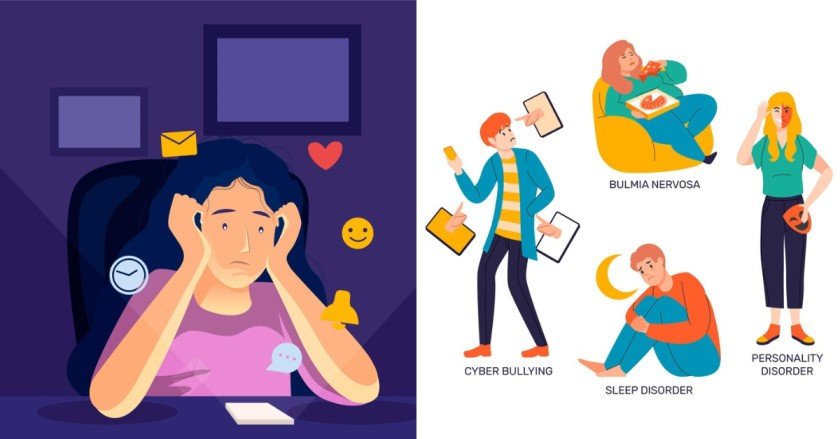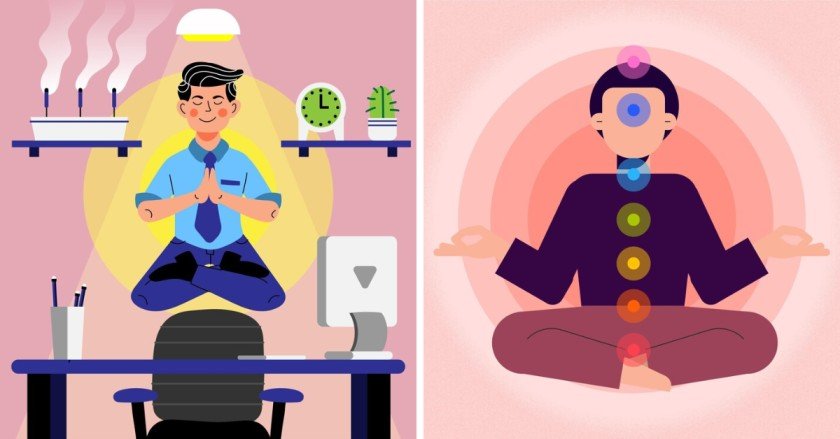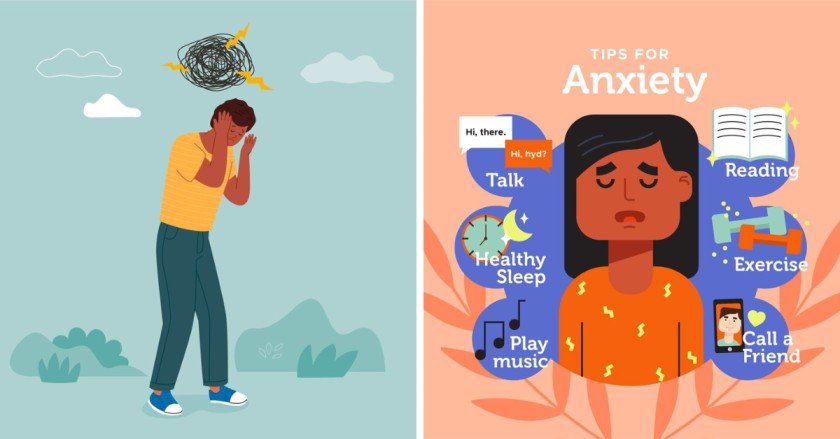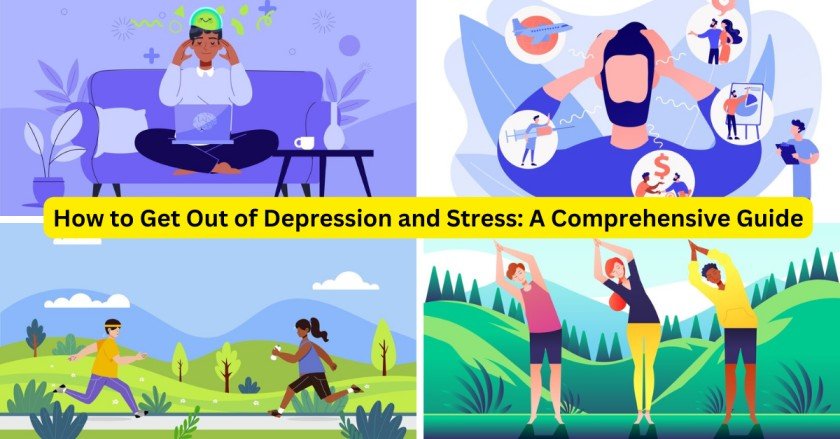Depression and stress are highly prevalent and impactful mental health conditions that can affect individuals from all walks of life, irrespective of their nationality, age, or socioeconomic status. These conditions are not limited to any specific region but are particularly prominent in Tier 1 countries, where the pressures of modern life can exacerbate their effects. The toll they take on individuals can be profound, causing a significant decline in their overall well-being and quality of life.
In Tier 1 countries, characterized by fast-paced lifestyles, high competition, and demanding work environments, the prevalence of depression and stress is notably heightened. The constant pursuit of success, coupled with the relentless pursuit of material wealth, can lead to emotional exhaustion and a sense of emptiness. The need to constantly prove oneself in a highly competitive society adds to the burden, leaving individuals vulnerable to mental health challenges.
Furthermore, the impact of depression and stress reaches far beyond the individual level. It can strain relationships, hinder productivity, and place a significant burden on healthcare systems. Recognizing the widespread nature of these conditions is crucial, as it highlights the urgent need for mental health support and intervention. By prioritizing mental health and providing accessible resources, we can create a society that is more compassionate, understanding, and supportive for those affected by these conditions.
Let us join hands and work towards creating an environment where mental health is valued, stigma is dismantled, and comprehensive support is available to all. Together, we can make a difference and help individuals overcome the challenges posed by depression and stress, fostering a society that cherishes the well-being of every individual.
Table of Contents
Understanding Depression and Stress
Depression is not just a temporary feeling of sadness; it is a complex mental health condition that goes far beyond experiencing a challenging phase in life. The impact of depression can be profound, affecting various aspects of a person’s well-being and quality of life. It is crucial to have a comprehensive understanding of this condition and seek appropriate medical care.

On the other hand, stress is a natural response that helps us cope with threatening situations. In some cases, stress can even have some benefits, such as increased focus and motivation. However, when stress becomes chronic and persists over time, it can lead to severe health complications. Prolonged stress can negatively impact both our physical and mental well-being, and may even contribute to the development of conditions like depression.
Recognizing the distinction between depression and stress is essential for seeking the right support and treatment. While depression requires comprehensive understanding and appropriate medical care, managing stress effectively is crucial to prevent it from becoming chronic and leading to severe health issues. Taking care of our mental health and seeking support when needed is vital for maintaining overall well-being and quality of life.
Effective Techniques for Combating Depression and Stress
When it comes to tackling depression and stress, there are a myriad of strategies available. These encompass a wide spectrum of approaches, each with its own unique benefits and considerations. Self-care tactics, such as practicing mindfulness and meditation, can help cultivate inner peace and resilience. Seeking professional therapy provides a supportive environment to explore the underlying causes and develop coping mechanisms. In some cases, considering medication options may be beneficial to rebalance brain chemistry. It’s important to acknowledge that everyone’s journey is different, and what works for one person may not work for another. Thus, taking the time to explore and find a method that resonates with you personally is crucial for the best possible outcome in your path towards well-being. Remember, you are not alone, and there is always hope for a brighter tomorrow.

The best way to get out of depression is to spend time with your family and be happy with them and you should exercise, walk in the garden, read good books and do whatever you like to keep yourself happy because being happy is the biggest medicine. To get out of depression and stress, take some time for yourself. In this fast-paced world, you need both physical and mental happiness.
| Tips | Description |
| 1. Colorful Diet | Incorporate a variety of colors in your diet through fruits and vegetables. Each color offers unique nutrients and antioxidants. |
| 2. Hydration Hacks | Carry a water bottle with you at all times and set reminders on your phone to drink water throughout the day. |
| 3. Plant-Based Proteins | Try plant-based proteins such as lentils, chickpeas, and quinoa. They are healthy alternatives to meat and are rich in fiber. |
| 4. Alcohol Alternatives | Opt for non-alcoholic alternatives like kombucha, herbal teas, or infused water. These can help curb alcohol cravings and are healthier options. |
| 5. Mindful Eating | Make eating a mindful activity. Focus on the food, savor each bite, and avoid distractions like TV or smartphones during meals. |
| 6. Bedtime Rituals | Establish a calming bedtime ritual, such as reading a book, listening to soothing music, or practicing deep breathing exercises. |
| 7. Digital Detox | Disconnect from electronic devices at least 30 minutes before sleep. The alertness stimulated by the blue light from screens can disrupt your sleep cycle. |
| 8. Consistent Sleep Schedule | Keep a consistent sleep schedule, even on weekends. This can regulate your body’s internal clock and help you fall asleep and wake up more easily. |
| 9. Non-Veg Moderation | If you consume non-vegetarian food, ensure it is lean and well-cooked. Aim to balance it out with ample servings of vegetables. |
| 10. Active Breaks | Take active breaks every hour during your workday. Stand, stretch, or walk around to counteract the effects of prolonged sitting. |
Adopting a Healthy Lifestyle
Engaging in regular exercise, such as cardio workouts, strength training, and yoga, can help release endorphins, which are known as “feel-good” hormones. These exercises not only boost your mood but also improve blood circulation and reduce stress levels.
Maintaining a balanced diet rich in nutrients, such as fruits, vegetables, whole grains, and lean proteins, provides your body with essential vitamins and minerals. These nutrients support brain function and help regulate mood and emotions.
Getting sufficient sleep is crucial for both physical and mental well-being. During sleep, your body repairs and rejuvenates itself, and your brain processes emotions and memories. Aim for 7-9 hours of quality sleep each night to ensure optimal mental health.

Consciously avoiding harmful substances like alcohol and drugs is important for managing depression and stress. These substances can disrupt brain chemistry and worsen symptoms of depression and anxiety. Opt for healthier coping mechanisms, such as engaging in hobbies, practicing mindfulness, or seeking support from loved ones.
By incorporating these lifestyle modifications into your daily routine, you are empowering yourself with effective tools to combat the challenges of depression and stress. These practices not only improve your physical health but also nurture your mental well-being, leading to a more fulfilling and happier life. Remember, small changes can make a big difference in your overall well-being.
Seeking Professional Help
If depression and stress become overwhelming, it is crucial to seek professional help. Experienced therapists and psychiatrists can provide effective treatments such as cognitive-behavioral therapy (CBT) and medication, which have been extensively studied and proven to be successful in managing these conditions. By addressing the root causes and implementing tailored strategies, individuals can regain control over their mental well-being and experience improved quality of life.

In cognitive-behavioral therapy (CBT), individuals work with a therapist to identify and challenge negative thought patterns and behaviors that contribute to depression and stress. They learn healthier coping mechanisms and develop skills to manage their emotions and reactions more effectively. CBT is a highly regarded form of therapy that has shown significant success in helping individuals overcome these challenges.
In addition to therapy, medication can also play a vital role in managing depression and stress. Psychiatric medications, such as antidepressants or anti-anxiety medications, can help regulate brain chemicals and alleviate symptoms. It is important to work closely with a psychiatrist to find the right medication and dosage that suits each individual’s needs.
Remember, reaching out for support is a brave and important step towards healing and recovery. Seeking professional help offers a safe space to explore thoughts and feelings, gain insight into one’s experiences, and develop effective strategies to cope with and overcome depression and stress. You are not alone, and there is help available to support you on your journey to improved mental well-being.
Conclusion
Overcoming depression and stress can feel like an overwhelming and challenging task. However, by implementing personalized strategies that cater to your specific needs, seeking support from a compassionate community that genuinely understands your struggles, and receiving professional guidance from mental health experts, you can embark on a transformative journey towards regaining your mental wellness and leading a truly fulfilling life.
It’s important to remember that it’s not only acceptable but also commendable to reach out for help when you need it. There’s an abundance of resources available to support you, such as therapy sessions where you can explore your emotions and develop coping mechanisms, support groups where you can connect with others who share similar experiences, and self-care practices that can nurture your overall well-being.

Always remember that you are not alone in this journey. There is hope, no matter how bleak things might seem at times. Together, we can work towards a brighter tomorrow, where you can thrive and experience long-lasting well-being.
Frequently Asked Questions
- What are some effective techniques to combat depression and stress?
There are several techniques one can adopt to manage symptoms, ranging from simple lifestyle changes to seeking professional help. Engaging in regular exercise, maintaining a balanced diet, ensuring adequate sleep, and practicing mindfulness through activities like meditation can significantly contribute to symptom management. Additionally, it is highly beneficial to seek assistance from a qualified mental health professional who can offer tailored therapies or medications based on individual needs. Taking a proactive approach towards mental well-being and exploring various strategies can lead to a more comprehensive and effective management of symptoms.
- How can a healthy lifestyle help in overcoming depression and stress?
Maintaining a healthy lifestyle is paramount when it comes to effectively managing depression and stress. Engaging in regular physical activity not only promotes the release of endorphins, which are the brain’s natural mood enhancers, but also contributes to overall well-being. Furthermore, following a well-balanced diet that provides essential nutrients is crucial for optimal brain function and mental health. Lastly, establishing consistent sleep patterns ensures that both the body and mind are adequately rested, fostering a positive state of mental well-being. By prioritizing these aspects of a healthy lifestyle, individuals can better equip themselves to navigate the challenges of depression and stress.
- What is the role of professional help in dealing with depression and stress?
Professional help is incredibly valuable when it comes to managing depression and stress. Mental health professionals possess the expertise to accurately diagnose conditions, provide evidence-based therapies such as cognitive-behavioral therapy (CBT), and if needed, prescribe appropriate medications. Moreover, they create a safe and non-judgmental environment where individuals can freely express their thoughts and emotions, facilitating a deeper understanding of themselves and empowering them to develop effective coping strategies for long-term well-being. Seeking the guidance of a mental health professional is a proactive step towards achieving and maintaining optimal mental health.
- Can self-care practices aid in overcoming depression and stress?
Yes, self-care practices play a crucial role in managing depression and stress. Engaging in activities that bring joy, such as pursuing hobbies or spending quality time with loved ones, can provide a much-needed respite from the challenges of life. Taking time to relax and unwind through activities like reading a good book, going for a peaceful walk in nature, or indulging in a soothing bath can help to alleviate stress and promote a sense of calm. Additionally, maintaining social connections and fostering meaningful relationships can provide a valuable support system during difficult times. Lastly, practicing mindfulness, such as through meditation or journaling, can help cultivate self-awareness, reduce negative thinking patterns, and promote overall mental well-being. By incorporating these various self-care practices into our lives, we can nurture and prioritize our mental health for a more fulfilling and balanced life.
- Are there any dietary tips that can help in managing depression and stress?
Yes, making certain dietary changes can have a significant impact on managing depression and stress. One effective strategy is to incorporate a variety of colorful fruits and vegetables into your meals, as they are rich in essential vitamins, minerals, and antioxidants that support mental well-being. Additionally, ensuring proper hydration by drinking an adequate amount of water throughout the day can help regulate mood and reduce stress levels.
Another valuable approach is to opt for plant-based proteins, such as legumes, tofu, and nuts, which not only provide necessary nutrients but also contain beneficial compounds that promote a positive mood. Practicing mindful eating, where you pay attention to the taste, texture, and sensation of each bite, can enhance the overall enjoyment of your meals and contribute to better mental health.
In addition to incorporating these positive dietary habits, it’s also important to limit alcohol consumption, as excessive alcohol intake can worsen symptoms of depression and anxiety. Moderating non-vegetarian food intake and focusing on lean sources of protein, like fish and poultry, can be beneficial for those seeking to manage their mental well-being through diet.
By adopting these dietary changes and embracing a holistic approach to mental health, you can take positive steps towards managing depression and stress more effectively.
- Can a consistent sleep schedule help in dealing with depression and stress?
Absolutely, maintaining a consistent sleep schedule is crucial in managing depression and stress. By sticking to a regular sleep routine, you allow your body to establish a healthy internal clock, which in turn makes it easier to fall asleep and wake up refreshed. In addition to that, incorporating a relaxing bedtime ritual, such as reading a book or taking a warm bath, can further promote a restful sleep. Furthermore, practicing a digital detox before bedtime, which involves staying away from electronic devices, can significantly improve sleep quality and contribute to better overall mental health. Taking these small yet important steps can go a long way in prioritizing self-care and nurturing your well-being.
- What are active breaks and how can they help?
Active breaks are short, intentional periods of physical activity incorporated into your workday. They could involve simple actions like standing up, stretching your muscles, or taking a brisk walk around your workspace. By engaging in these breaks, you counteract the negative effects of prolonged sitting, boost blood circulation throughout your body, and give yourself a mental reset, allowing you to manage stress levels more effectively. These active breaks not only contribute to your overall well-being but also enhance productivity and focus, ensuring that you perform at your best throughout the day. So, don’t underestimate the power of incorporating active breaks into your work routine!
Read Related Article on Health:-
Best 5 Benefits of Monitoring Sleep Patterns Using a health Gadget
Wearable health gadgets that monitor sleep patterns provide many benefits. They identify sleep irregularities and cycles, allowing understanding of disruptions to address. The data enables tailoring sleep recommendations to each individual for enhanced quality rest. Good sleep boosts next-day energy, productivity and athletic recovery. These devices also discover potential underlying health issues like sleep apnea early. Integrating sleep data with other health metrics promotes a holistic view of wellbeing and lifestyle improvements. By leveraging wearable technology insights on sleep durations, stages, consistency and connections to cognition and immunity, individuals are empowered to make informed decisions. Small changes add up to improved sleep hygiene, health and performance. Monitoring sleep patterns thus allows optimization across multiple aspects of life…Read More
